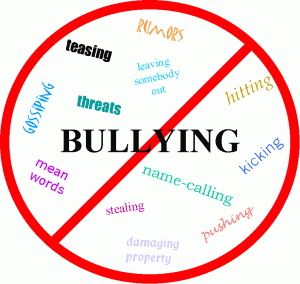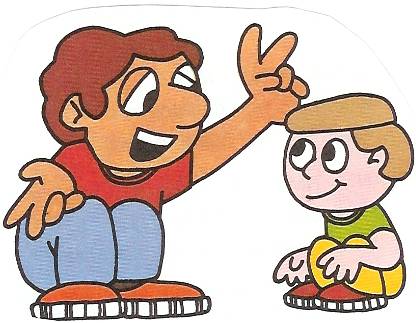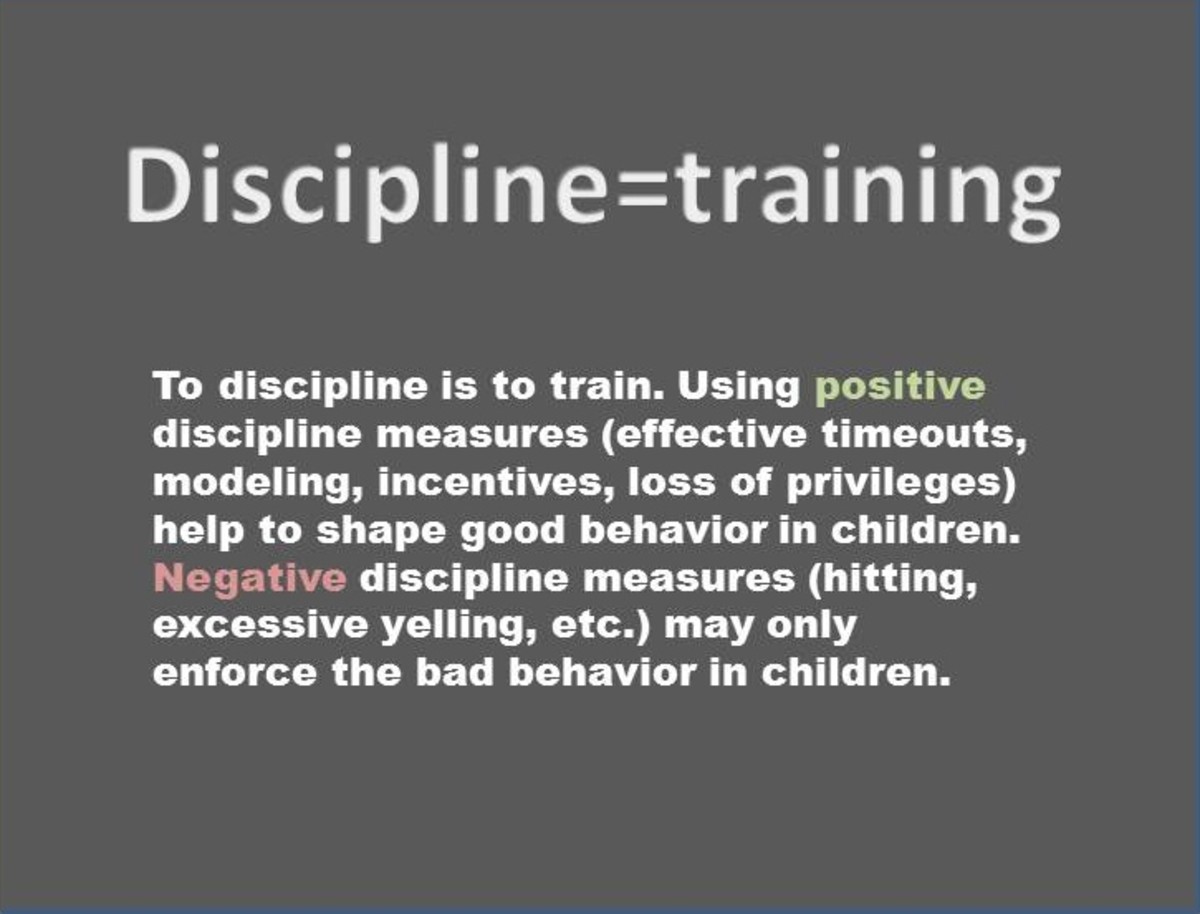Being Assertive - Help Your Child Who is Bullied, Put Down, and Teased by Others
Protecting Your Child from Bullying, Put Downs, and Teasing
From insulting remarks, to bullying, kids who are put down by other people live with shame, embarassment, and poor self esteem. Some put downs are done behind the person’s back so others think less of that person, and sometimes they teased right to their face. Put downs are done to hurt the person they are directed at. Assertiveness is the best weapon against this negative behavior.
Children are often subjected to put downs, and this can hurt their egos as they grow into adults. It is very important to encourage children to speak up for themselves, so that there is a zero tolerance for them to be treated this way. There are ways to teach kids to be assertive.

Empower Your Child
Children who are teased and bullied often do not want to go to school. As a parent it is hard to protect our children from the affronts they face from these hurtful situations. Parents can empower their children with effective strategies that will equip them to deal with teasing in a proactive manner. It is important to give children coping skills to help them manage themselves in socially challenging situations. Put downs can hurt. Children will often feel sad, or angry and feel very alone. If internalize their feelings, they may turn to destructive behavior. Try to make yourself available for your children to talk to you about their day and how they interact with their schoolmates.
When your child is the subject of put downs and ridicule, empathy for your child is one of the most important things you can do. To see the situation from their point of view will help validate their feelings. Sometimes you can tell them your own childhood experiences. It is important not to diminish or judge their feelings. Don’t overreact, it may cause an overreaction in your child. Give them a feeling of strength and confidence so that they can feel like they can handle the situation. Encourage your child to associate with other kids who make them feel good. Observe your own behavior. What are you modeling for them? Remember they are watching us more than we realize.
Validate Your Child's Feelings
It is important to empower your children and to help them realize they are not as helpless as they may think they are. Strengthen their coping skills by teaching them positive self talk while they are being teased.
- Teach them just because someone says something, doesn’t mean it is true. Teach your child to ignore what is being said instead of reacting by crying or through anger.
- Teach your child to pretend the other person is invisible.
- Teach your children to be assertive.
- Teach them to speak in terms of “ I feel...” when there are adults around, otherwise the child may make themselves more vulnerable.
- Teach them to make eye contact when they are expressing themselves.
- Teach them to say “so”, showing that what the teaser says doesn’t affect them and the teaser gets no satisfaction. Bill Cosby wrote a book The Meanest Thing to Say and humorously used the “so” strategy. A child can compliment the teaser.
- Teach your child to use humor against the put down. It can turn the hurt into a laughable situation.
- Teach your child to ask for adult intervention. Asking for help is important, so they don’t have to feel alone in the situation.
- And most important, that they can come to you with judgment or criticism from you. It is important that they can share with you what they are going through and show them that their feelings will are validated by you.
Bill Cosby's Book about Bullying
Assertiveness Skills
Children should be encouraged to say things like that is not funny, please stop. To tell the person in a calm and polite way that what was said was mean, they don’t like it. To state that they feel insulted. To say it is disrespectful, prejudicial, it is unacceptable, leave the situation if necessary, point out it is bullying, dishonorable, tell them you thought they were better than that . It is important to teach children to say “I feel” statements. I feel sad when you say things like.
Very often when people are called out on their put downs, they will react defensively. They may try to turn it back on you, like “can’t you take a joke?”. It is important that the child remains assertive by saying they feel hurt, and it wasn’t funny.
Another common reaction is the person who did the put down says you are overreacting or you are too sensitive. An adequate response may be to say they feel uncomfortable about what was said.
People who put others down may defend themselves by saying it is just their opinion, and they have the right to say what they want. Assertive response: if someone spoke about you that way, how would you feel?
They may defend themselves, saying they are trying are trying to be helpful. It was only the truth. Assertive response: it is not helpful what you are saying
They may try to turn the tables and blame you, like you got them angry.
Assertive response: apologize for making them feel angry, but tell them there was no reason to talk like that.
They may threaten, in which case the child should leave for their own safety.
They may deny they ever said that, or try to make it like you misunderstood what they said. Assertive child could tell them that is still no excuse.
As an adult, it is important that we are respectful to our children and to other people. Lead by example. If you did wrong someone, it is important that you apologize and recognize what example you are setting.
Assertiveness Skills Will Protect Your Child From Abuse
Prolonged and repeated teasing, threats, violence, inappropriate touching and physical contact is harassment. A parent needs to be alert and sensitive to the idea that this could be going on. Your immediate intervention is important and necessary. Get school administrators, social workers, and possibly other parents involved in order to head off the continual abuse and to take appropriate action to resolve the issue and protect your child.
Teasing can’t be prevented, but you can arm your child with tools that empower them. Teach them to stand up for themselves and protect themseleves from verbal abuse. The more your child learns to do for themselves, the more your child will alleviate the teasing and harassment.
A Good Self Esteem is Important
There are many advantages to teaching your child to be assertive. Teaching your child to stand up for themselves will last a lifetime and is useful in all relationships. An assertive child will be able to stand up against the offenses of another, and will also be able to ask for extra help when they don’t understand something that is being taught by the teacher. Your child will have an easier time making friends, and will make better friends because they will be more self confident.
Assertiveness starts with a good self esteem, so help your child to feel good about themselves. If your child feels good about themselves, they will be more comfortable stating their needs. If your child tends to be more passive, you can encourage them to stand up for themselves in a polite way. Teach your child that they don’t have to obediently follow the demands of another child. Discourage your child from trying to fit and forsaking their own needs. They need encouragement to see that they will not be abandoned because they stand up for themselves. And if they are abandoned, it is important for them to understand rejection and seek the value of true friendship.
Assertiveness takes practice. Teach your children that their needs count too, and they have a right to speak up for themselves. They do not have to tolerate negative talk, teasing, put downs and abusive behavior.

Assertiveness is a Good Skill for Many Situations
The idea is to make sure you child can make their needs known in a way that is non confrontational. Encourage them to be free thinkers and to think for themselves. Let them decide for themselves what the like and why. At 4 years old, ask them what their favorite color is and why. At 10 years old, let them express their opinions about their clothes and music. As a teenager let them tell you what they would do if they won the lottery. Listen without judgment. Provoke conversational age appropriate questions, to encourage them to trust their own opinions.
Encouraging a child to believe in themselves is the way they will trust themselves to stand up against people who treat them badly. Teach them to trust themselves and they are more likely to make the right decisions, and the right friends. Being an assertive person is a lifelong responsibility we all owe ourselves and our children.





